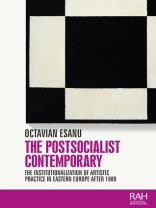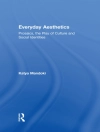The postsocialist contemporary joins a growing body of scholarship debating the definition and nature of contemporary art. It comes to these debates from a historicist perspective, taking as its point of departure one particular art programme, initiated in Eastern Europe by the Hungarian-American billionaire George Soros. First implemented in Hungary, the Soros Center for Contemporary Art (SCCA) expanded to another eighteen ex-socialist countries throughout the 1990s. Its mission was to build a western ‘open society’ by means of art. This book discusses how network managers and artists participated in the construction of this new social order by studying the programme’s rise, evolution, impact and broader ideological and political consequences. Rather than recounting a history, its engages critically with ‘contemporary art’ as the aesthetic paradigm of late-capitalist market democracy.
Tabla de materias
Introduction
1 Sorosart: how Eastern Europe got the idea of contemporary art
2 New norms and procedures: the introduction of the curatorial function
3 Art in the ‘open society’: the aesthetics of problem-solving
4 Antipolitics: the ideological bedrock of the postsocialist contemporary
5 Can there be contemporary art in North Korea? Methodological epilogue
Index
Sobre el autor
Octavian Esanu is Associate Professor in the Department of Art and Art History at the American University of Beirut (AUB) and Curator of AUB Art Galleries












